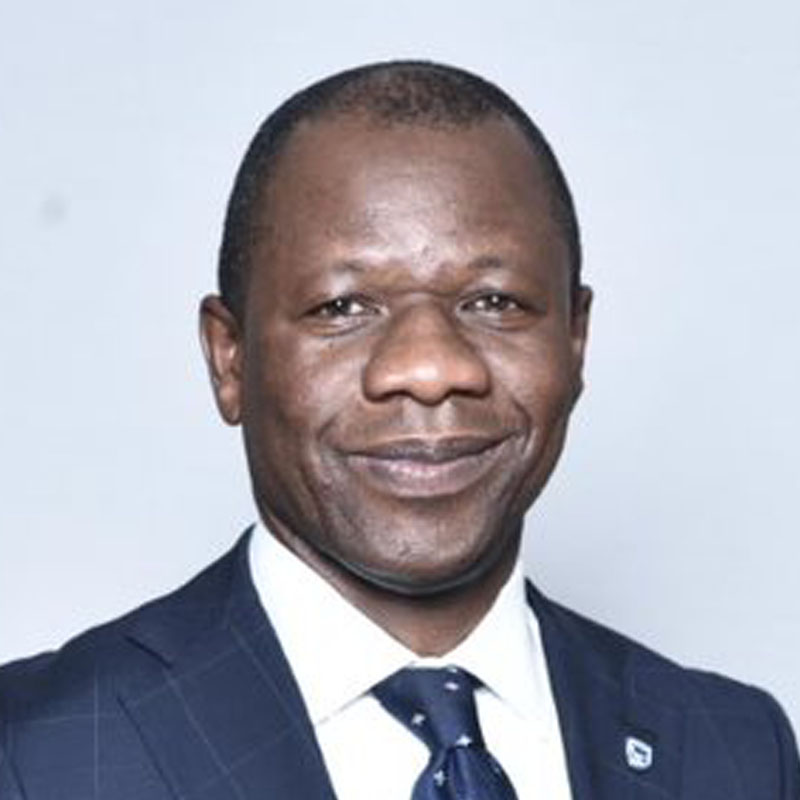At the Core Banking Modernisation Summit hosted by KPMG, themed “Building a Resilient Core: Strategies for Successful Core Banking Modernisation” and organised by KPMG, the Managing Director of Stanbic IBTC Bank, Wole Adeniyi delivered a compelling call to action for Nigerian banks to urgently modernize their core banking systems. Speaking to a gathering of regulators, financial executives, and technology leaders, Adeniyi shared hard-earned insights from decades of leading major transformation projects and warned that the industry was approaching a critical tipping point.
“Once you’ve gone through a core banking transformation, you never want to do it again. Imagine how many times I’ve been through it,” he said. “I’ve defined my life by it. With over 32 years in the banking sector, most of which I spent driving core banking upgrades and digital transformations, I can tell you this is a conversation the industry can no longer afford to delay.”
YOU CAN ALSO READ: George Elombi Appointed President of Afreximbank, Becomes Fourth Leader in Bank’s History
Adeniyi is not a stranger to the complexities of large-scale financial system overhauls. With a career spanning banking operations, IT systems, and business transformation, he has been at the forefront of Nigeria’s evolving financial services landscape. He began his career at Citibank, where he participated in multiple core banking transitions before moving on to other institutions. He eventually joined Stanbic IBTC Bank, where his experience would play a pivotal role in shaping the bank’s modernization journey.
At the summit, he highlighted the alarming reality that 60 percent of Nigerian banking customers currently operate on a single core banking platform, yet only one bank has upgraded to the latest version. The rest are still running outdated systems that are nearing obsolescence. “There’s no better time to do this than now,” he said. “This initiative KPMG is leading should actually be paid for by the industry. It’s critical work that will benefit all of us.”
Adeniyi noted that the Central Bank of Nigeria now mandates regulatory approval before banks go live with any core banking changes, a policy shift introduced to ensure an orderly transition and minimize systemic disruptions. He identified four key imperatives driving the urgency for core banking modernization: the need to support open banking, the accelerating pace of technological change, the demand for agility in customer acquisition and service, and the shift toward hyper-personalization powered by artificial intelligence.
“You can’t embrace open banking with outdated, overly customized legacy systems,” he said. “Platform vendors are phasing out support for aging infrastructure, and we can’t afford to keep building on what no longer evolves. Fintechs like Opay and PalmPay didn’t get to 50 million users by accident, it’s because of their agility. Legacy platforms just can’t compete.”
Adeniyi, who holds a First Class degree in Business Administration from the University of Benin, also emphasized the rising importance of customer experience in today’s competitive banking environment. “The future of banking is AI-driven and agentic. Customers will transact by simply using their voice to instruct intelligent agents. If your core banking system can’t support that level of interaction, your bank won’t be relevant in the next decade.”
He referenced futurist Brett King’s upcoming book Banking 10.0, pointing to the rise of agentic AI as the next revolution in financial services. “This is not science fiction, it’s already happening, and we must prepare our systems to meet that future,” he added.
Sharing from his personal experience, Adeniyi applauded KPMG’s role in one of the most seamless core banking transformations Stanbic IBTC has executed. “We went live with zero issues. That was a first for us,” he recalled. “With the leadership and structure KPMG brought to the table, everything worked”
Adeniyi’s extensive track record includes serving as Head of Business Operations and Corporate & Investment Banking Support at Stanbic IBTC, after earlier holding the role of Head, Country Operations for the former Stanbic Bank Nigeria. He also holds a Master’s degree in Administration from the University of Manchester, United Kingdom, and is a Fellow of the Institute of Chartered Accountants of Nigeria. These academic and professional achievements have helped reinforce his influence as a transformation leader within the banking sector.
He stressed that modernization requires more than surface-level upgrades. Today’s banking systems must be API-first, cloud-native, composable, interoperable, cost-effective, and designed with robust data governance. “These capabilities don’t just future-proof your operations, they help you meet regulatory requirements, launch products faster, and expand financial inclusion,” he said.
YOU CAN ALSO READ: “Private Capital, Rule of Law, and Visionary Leaders Are the Path to Africa’s Transformation,” Says Trump Adviser at Afreximbank Summit
Adeniyi cautioned that the biggest risk is poor implementation. “We’ve seen how even minor upgrades have disrupted services industrywide. That’s why the Central Bank now insists on regulatory oversight,” he said. “But when executed properly, with the right partner and a clear roadmap, success is entirely possible.”
Despite industrywide talent gaps driven by emigration, Adeniyi expressed optimism in the capabilities that remain. “We’ve done it before, and we can do it again,” he said. “During our last migration, we achieved 100 percent success in data transfer, arguably the most difficult part of any transformation.”
He noted that while banks could consider phased upgrades, a “big bang” approach, completely transforming systems at once, can still work if done with the right level of planning, discipline, and strategic collaboration. “That’s how we did it,” he said. “With clear planning, trusted partnerships, and full commitment.”
In addition to his executive role at Stanbic IBTC Bank, Adeniyi currently serves as a Non-Executive Director on the Boards of Stanbic IBTC Nominees Limited and the Financial Institutions Training Centre (FITC), where he continues to influence the future of financial services delivery in Nigeria.
He closed with a clear and urgent message: “We must act now. Every bank must transform. Our core banking application is no longer supported. To stay relevant, we must modernize. This isn’t just about open banking, it’s about survival. Those who modernize will thrive. Those who don’t will be left behind.”










